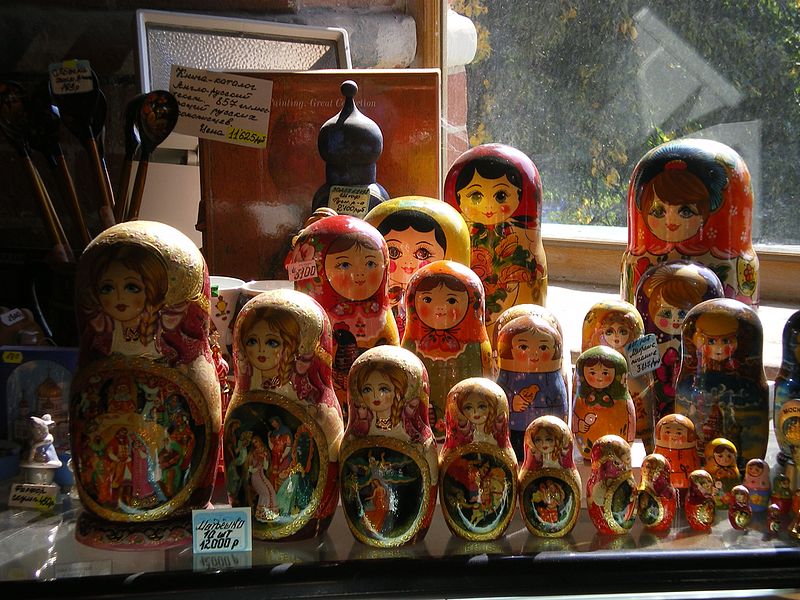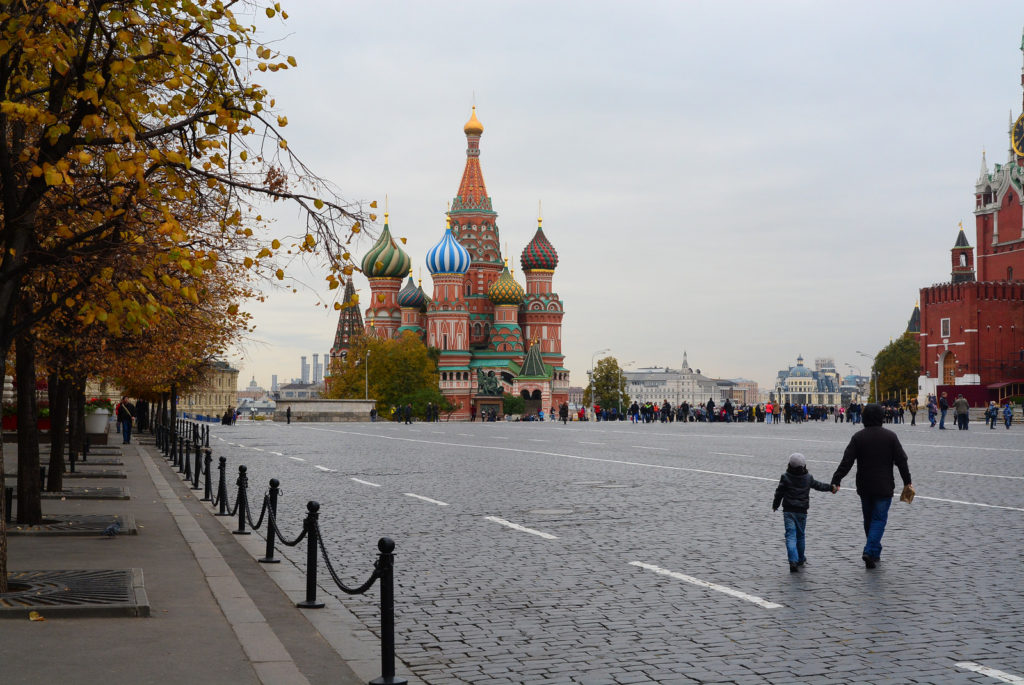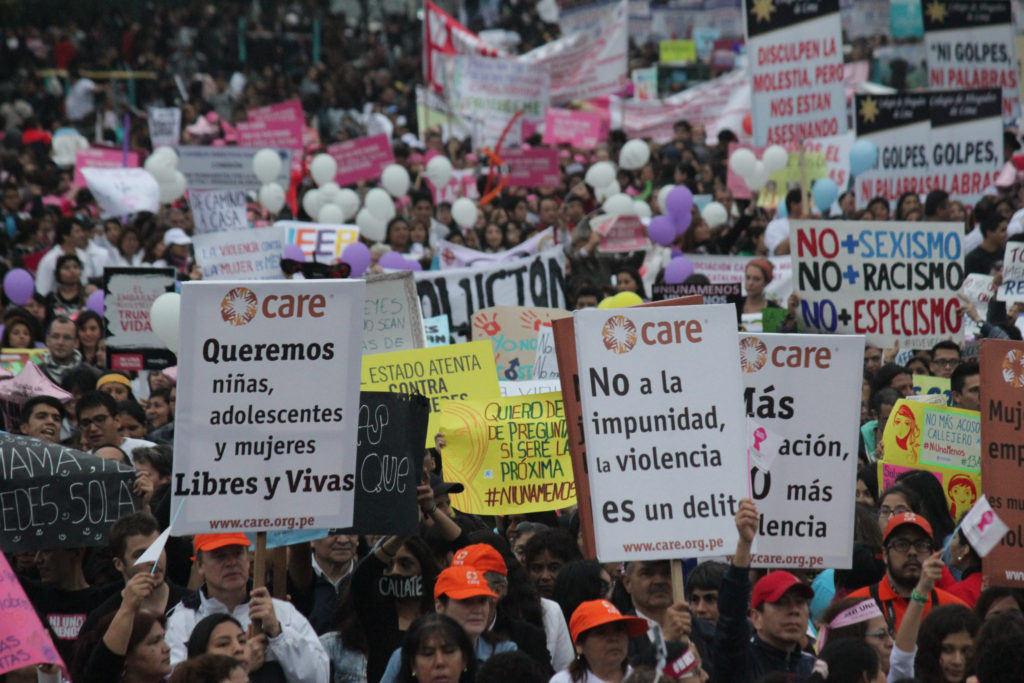Russia and Peru: A Shared History of Gender Violence

Now that there are only a few months left before Peruvians can see their national football team play in the FIFA World Cup in Russia for the first time in 36 years, it is worth inquiring into the glaring reality of the host country. And no: I do not refer to the famous matryoshka dolls, the Muscovite stadium of Luzhniki, the delicious borsch, or the unparalleled architectural beauty of Saint Basil’s Cathedral in Moscow’s Red Square. In truth, one does not need to do a lot of research to come across a gruesome phenomenon which not only finds its roots in the Slavic giant, but also has a strikingly similar correlation in Peru: Both states share a shameless history of femicide that persists to this day. According to Rossiskaya Gazeta, the official newspaper of Vladimir Putin’s government, between 12,000 – 14,000 women pass away every year on account of domestic violence. In the case of the Andean country, which has an equally long-standing tradition of misogyny and violations of women’s rights, there have been 837 confirmed murders of women between 2010 – 2017. All too often, victims do not have the confidence to come forward because they know they will not get the support they need. In light of this exponential—and potentially expanding—crisis, it is paramount to re-assess our political and humanitarian priorities in order to create spaces of justice to prevent more women from going through such a deprecating experience.

Apart from being the largest country in the world, Russia has an utterly rich history. From the settlement of Slavic tribes in III and VIII century Europe, a great civilization blossomed and witnessed the transcontinental expansion of a nation spanning from Tsardom, the Russian Revolution, Stalin’s Great Purge, and the Soviet era, to the unprecedented process of reformation that supposed Perestroika under Gorbachov’s leadership. Russia is the homeland of numerous individuals whose influence on the cultural world has transcended its geographic frontiers, ranging from composers Pyotr Ilyich Tchaikovsky, Igor Stravinski, and Sergei Eisenstein, to literary giants Anton Chekhov, Fyodor Dostoevsky and Leo Tolstoy. Unfortunately, next to this remarkable historical and cultural legacy there is also a deep-rooted patriarchal tradition of misogyny and gendered violence which has lingered in the present. This phenomenon is fundamentally due to the rigid social precepts and religious doctrines that conduct and constrain relationships between men and women.
In Russia, the ultra-conservative discourse has always led the way in the political field. In fact, there are some who describe the majority of Russians as proud of endemic male chauvinism and the patriarchal hierarchy that characterizes the most underdeveloped and anachronistic nation-states. This precarious situation (which is by itself extremely difficult to cope with) is worsened by the fact that the nation currently lacks genuine legislation to combat the thousands of internationally recognized women rights’ violations. It is actually quite the opposite: in general, police officers are indifferent to calls from women who, amidst coldblooded rituals of torture, request immediate protection from local authorities. Given the common knowledge that the system constantly undermines their physical and psychological integrity, Mari Davtian—one of the few minds behind a failed policy proposal that hoped to prevent gender-based violence—contends that 90 percent of women who have denounced acts of aggression do not resort to tribunals because they know nobody will hear them.
Early last year, President Putin approved a controversial law that decriminalizes domestic violence. Under this new law, perpetrators of gendered violence now face a fine worth less than 500 Euros. According to the permanent resident of the Kremlin, the intervention of justice in Russian homes constitutes a violation of the sacredness of the family. Dmitry Smirnov, the priest in charge of the Russian Orthodox Patriarchy’s commission on family issues, maintains that the intrusion of the state in family affairs illustrates the imposition of Western values in Russia. Unsurprisingly, Yelena Mizulina—the ultra-conservative MP who, apart from drafting this law, also orchestrated the Russian law against “gay propaganda”—got her inspiration from the Russian proverb, “If he beats you, it means he loves you.” Unsurprisingly, opposition by the international community was unrestrained. Among many other world leaders, British Prime Minister Theresa May (who recently expelled 23 Russian diplomats following the poisoning of ex-spy Sergei Skripal) criticized the law, stating that “we see this as a retrograde step by the Russian government. Repealing existing legislation sends out absolutely the wrong message on what is a global problem.”
While gendered violence is a criminal offense in Peru, in a similar vein, there is a widespread reticence to changing the patriarchal culture that gives rise to such phenomena in the first place. A 2015 study of Peru’s national human rights ombudsman’s office revealed that, in 81 percent of domestic violence cases committed between 2009 and 2015, no measures were taken to ensure the safety of the survivors. In fact, 24 percent of the women who turned to the state for protection were eventually killed by the same men they had hoped to escape. In response to the elevated number of gender-based killings, the #NiUnaMenos (transl.: Not one less) movement—the largest of its kind in Peruvian history—congregated tens of thousands of male and female demonstrators to march against gendered violence before the Palace of Justice and other emblematic spots of Lima’s historic downtown. Following the rape of a social worker during the national census in October, the hashtag #PerúPaísDeVioladores (transl.: Peru country of rapists) proliferated on social media. Nevertheless, by and large, the vast majority of Peruvians (whose bigotry stems from their conservative and dogmatic values) vociferously complain about the attempts made by the Ministry of Education to inculcate notions of gender equality and the formation of sexual identity into children. As a result of this, the #ConMisHijosNoTeMetas (transl.: Don’t mess around with my children) movement ensued.

While some of us are busy collecting stickers to add to our 2018 Panini World Cup Sticker Collection, thousands of Russian and Peruvian women are the object of all kinds of abuse. A vast majority have been taught from a young age that they are vulnerable, they are delicate, and that their place is at home to please their husbands and bring up their children. If there is a similarity between women and the matryoshka dolls (and, of course, I do not refer to the fragility of the latter), it is the fact that they keep inside themselves all the potential they need to be and do whatever they want. In order for this to materialize, we have the responsibility of empowering them and eradicating the anachronistic and retrograde thoughts and attitudes that are deeply implanted in our societies.
Angello Alcázar is an undergraduate student at McGill University pursuing a Joint Honours degree in both Sociology and Literature.
Edited by Alec Regino
